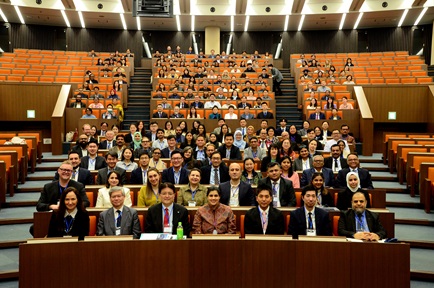Always look back... the healing power of nostalgia
The challenges of adjusting to a new country is well documented…the culture shock from the different way of life, the food, and the new rules of interaction.
By Zou Xi

Just got a posting to Mumbai, London, Dubai? Congratulations and commiserations will start pouring in. The challenges of adjusting to a new country are well documented - the culture shock from the different way of life, the food, and the new rules of interaction. There are no similar concerns for those returning home, perhaps because the process does not involve learning a new language or new norms. However, many returning expatriates - or repatriates - often experience reverse culture shocks and a sense of discontinuity in their careers and personal life.
While common advice for repatriates is to move on from their international experience and try to forget about the past, our research shows that an opposing strategy - holding on to the host cultural experience - is a more effective adjustment strategy.
Nostalgia, or a sentimental longing for one's past, consists of meaningful and rosy memories that warm the cockles of one's heart. Repatriates returning home also often describe the years spent in the host culture with sentimental longing; they have come to embrace the host culture and adopted some of its values and behaviours. Upon returning home, repatriates may experience hostalgia, a nostalgia for the good times and experience in the country that had hosted them.
My collaborators and I surveyed over 700 international teachers from 41 different countries who worked in the United States (host culture) and then returned to their home countries. Participants were asked to indicate how nostalgic they felt about their years in the US, for example, about the town they lived in or about the friends they made. We then measured their sense of self-continuity. That is, the extent to which thinking nostalgically about their years in the US made them "feel connected with my past" and "feel that there is continuity in my life".
Next, we used three indices to measure how well repatriates adjusted back to their home country. In terms of self-esteem, did they feel better about themselves and were more confident? Did they show less signs of loneliness, anxiety and depression? In terms of approach motivation, were they more enthusiastic about dealing with new challenges? In terms of job satisfaction, were they more satisfied in their new work environment, and believed they would be able to fruitfully apply what they had learnt in their host culture to gain further success?
Our data showed that repatriates who dwelt nostalgically on their international experiences reported more self-continuity, and in turn adjusted better on return. Hostalgia is helpful to psychological health and an important coping mechanism. The memory of the past is a linchpin that connects repatriates' experiences across different cultures and time periods. Rather than regarding the overseas portions of their lives as being discrete and unconnected, hostalgia knits these parts into a coherent and continuous self; denying the host culture risks losing a part of the self that one has come to value.
Our results about hostalgia and its downstream implications for repatriates' psychological adjustment have practical implications for international organisations and government agencies that send and repatriate staff.
Boosting employees' nostalgia for their experiences abroad could be an effective yet low-cost strategy to facilitate re-entry success into their home country.
APPRECIATION OF SELF
Organisations can develop programmes that encourage returning individuals to reflect on their experiences.
These could be via programmes to share either their personal journey or professional development from living and working in a different environment. Such tasks necessitate reflection on their achievements as well as challenges they have overcome, thus forming an appreciation of their self as a composite and coherent whole. Or it could be as simple as sharing a craft or a game they had learnt during their posting. Other strategies include encouraging returning employees to continue with a hobby, such as origami or jogging, that they had taken up while overseas.
The therapeutic effect of nostalgia extends beyond returning expatriates. In another study where the researchers interviewed faculty members of a Turkish training institution for women (Brown and Humphreys 2002), the employees commented that they often reverted to nostalgia as a way of adjusting to their new environment. This suggests that nostalgia can be applied as a coping mechanism in other domains of organisational behaviour, for example, when there is organisation change, when there is a leadership transition or when the company is facing external challenges such as a takeover situation.
As more people work overseas, more will be returning to their home countries and facing new challenges.
With its powerful and positive influence on psychological adjustment, hostalgia can be a salve and energiser during challenging periods - to shore up one's self-esteem and resolve in trying times or in a mid-career change to another industry, or in the midst of uncertain work situations.
To all the repatriates, do not feel bad if you feel nostalgic about the time overseas. Hostalgia can become a fount of positive energy for taking on new challenges or when resilience is needed.
The writer is an associate professor of Strategy, Management and Organisation at Nanyang Business School, NTU. The research project mentioned in this article is co-authored with Tim Wildschut and Constantine Sedikides at the University of Southampton in UK and Dan Cable in London Business School.







